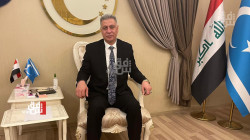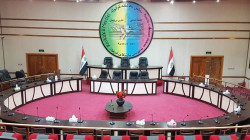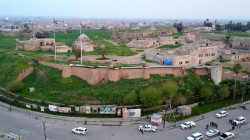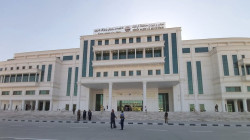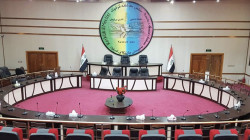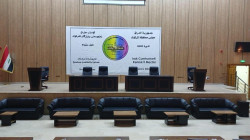Kirkuk's political landscape under new governorship deal: disputes, legal challenges, and power-sharing
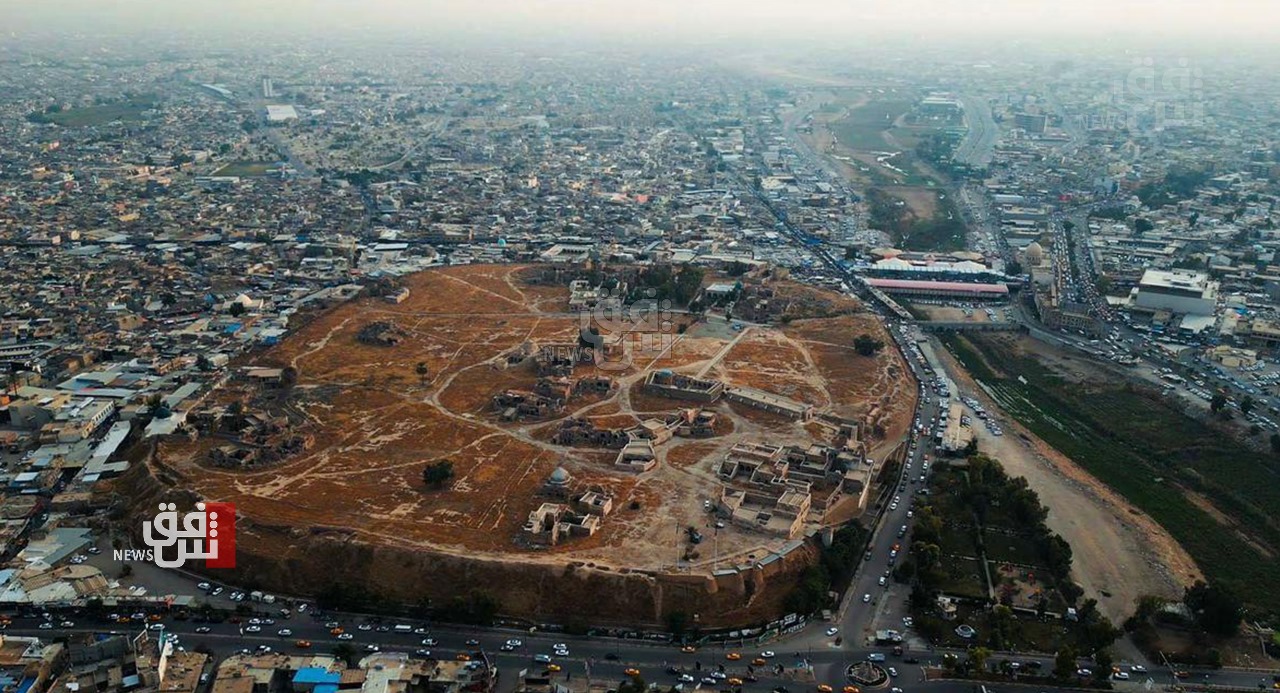
Shafaq News/ After months in the top lock, the representatives of Kirkuk's diverse communities agreed to rest their arms and shake hands. On Saturday, Rebwar Taha, a candidate from the Patriotic Union of Kurdistan (PUK), was elected governor, while Ibrahim Mohammed Hafez, representing the Arab community, was chosen as the chairman of the governorate's council.
The election of the new leadership for the ethnically diverse governorate of Kirkuk comes more than eight months after local polls. Known as a microcosm of Iraq due to its mix of Kurds, Arabs, Turkmen, and Christians, Kirkuk has long been a flashpoint for tensions between the federal government and the Kurdistan Regional Government.
The strategic governorate, rich in oil, has been a focal point of disputes over territory and resources. The latest elections, which give birth to a crispy delicate balance of power between the various ethnic groups, reflect the complex political landscape of Iraq. This post-mature government is expected to navigate the challenges of governing a population engrained with deep-seated ethnic and political divisions while taking into consideration the far reaching implications on the future of Kirkuk and, ultimately, the relationship between Baghdad and Erbil.
Prior to the December 2023 elections, repeated attempts to hold local polls in Kirkuk had been unsuccessful due to the complex ethnic dynamics. The elections, which saw a relatively balanced distribution of seats among Arabs, Kurds, and Turkmen, were seen as a significant step forward. However, the subsequent process of forming a new government was fraught with difficulties, as political parties failed to reach a consensus on key leadership positions.
The deadlock prompted Iraqi Prime Minister Mohammed Shia al-Sudani to intervene, facilitating a series of meetings in Baghdad aimed at breaking the impasse. These efforts eventually led to the formation of a new local council, but the boycott of several major political factions marred the process. This has raised concerns that the new government may lack the legitimacy and support necessary to govern the governorate effectively.
Baghdad Meeting
In a meeting held on Saturday evening at the Al-Rasheed Hotel in Baghdad, six members of the Kirkuk Provincial Council elected a new governor. The group comprised five members of the Patriotic Union of Kurdistan and one member of the Babylon Movement. Earlier in the day, members of the Arab bloc had announced a boycott of the council session, but three Arab members—Raad Al-Saleh from the Taqaddum bloc, Ibrahim Mohammad Hafez from the Sovereignty bloc, and Zahir Al-Assi—joined the meeting, bringing the total number of attendees to nine.
The meeting was notably held without the participation of members from the Kurdistan Democratic Party (KDP) and the Turkmen Front, who each has two seats, as well as three other Arab members: Rakan Al-Jubouri, Ahmed Al-Hamdani, and Salwa Al-Mufraji.
Ribwar Taha was elected as governor of Kirkuk with six votes, while Ibrahim Mohammad Hafez was also elected as council chairman with the same number of votes. This marks the second council of its kind since 2005.
Governance By Rotation
An advisor to Iraqi Prime Minister has announced an agreement among the components of Kirkuk to rotate the position of governor and share power, a measure aimed at preventing the dissolution of the Governorate Council.
In an interview with Shafaq News Agency, Turhan al-Mufti stated, "The components of Kirkuk and the political blocs that won in the Council elections have agreed to form a joint consensus government representing all components." He added that "the governor's position will be rotated among the winning blocs."
Al-Mufti emphasized that "the Prime Minister maintains a neutral stance, and positions will be allocated according to entitlements, without decisions being imposed from Baghdad."
New Governor, New Phase
In his first statement after being elected, the new governor of Kirkuk, Ribwar Taha, announced the beginning of a new phase in Kirkuk focused on promoting peace, harmony, and reconstruction.
Taha, a senior figure in the PUK, stated that his priorities will include "strengthening security, improving services, and rehabilitating infrastructure." He highlighted the importance of addressing all sectors and leveraging Kirkuk's rich resources to improve the lives of its citizens.
He also stated that his position would serve as a tool for achieving political and social peace and fostering coexistence among all components of Kirkuk. Taha affirmed that he would be a governor for "Kurds, Arabs, Turkmen, Christians, and all segments of society."
Non-Participated Members Responds
The KDP said it was excluded from taking part in the recent developments. The head of the KDP bloc, Hassan Majid, told Shafaq News Agency that none of the bloc members had received any official invitation to convene a session of the Kirkuk Governorate Council, whether in Kirkuk or Baghdad.
Majid added, "There are legal and administrative procedures for notifying members of the time and location of meetings," which, he claimed, had not been followed.
Meanwhile, the Turkmen Front has announced plans to take legal action. Speaking to Shafaq News Agency, Turkmen Front spokesperson Mohammad Samaan stated, "The Turkmen will resort to the judiciary to challenge the council session that was held without their participation or agreement." He added, "We will contest the procedures of the session and the decisions made during it, and the judiciary will have the final say."
The members of the Arab group in the Kirkuk council also expressed their rejection of any council session that does not meet the legal requirements stipulated in Article 13 of the Governorate Council Elections Law. The law mandates that the local government in Kirkuk be formed with the consensus and participation of all winning blocs representing the province's components.
The statement, reported by Shafaq News Agency, emphasized that the council's first session decision, which all its members approved, requires consensus among all components before forming the government and holding any session. The Arab group stressed that any member who violates this agreement would be breaking their commitments to the Arab group and the electorate who entrusted them with the responsibility of defending the Arab community's interests.
Elections in Kirkuk are often more complex compared to other Iraqi governorates. These complexities stem from several factors, including the city's diverse demographic makeup, which poses challenges to any electoral process. Kurdish parties strive to assert their strong presence in the city, while Arabs and Turkmen work to secure their representation in the local leadership.
